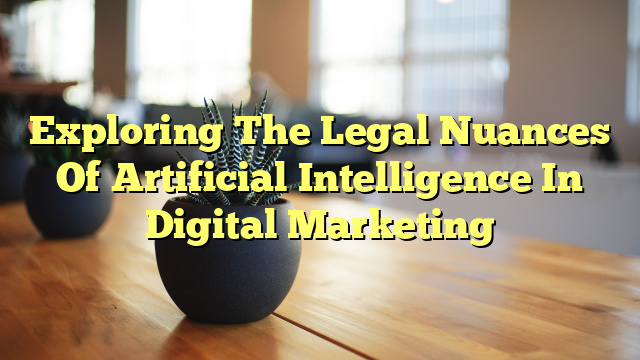Table of Contents
Legal Perspective of Artificial Intelligence
Artificial Intelligence (AI) is a rapidly evolving technology that has significant legal implications. From a legal perspective, AI raises various concerns related to privacy, data protection, intellectual property, liability, and ethics. As AI becomes more prevalent in digital marketing, it is crucial to understand and address these legal nuances.
Key Legal Issues of Artificial Intelligence
There are several key legal issues associated with AI:
- Data Privacy and Protection: AI relies on vast amounts of data, raising concerns about how personal information is collected, stored, and used.
- Intellectual Property: AI-generated content, such as automated advertisements or product descriptions, may raise questions about copyright and ownership.
- Liability: When AI systems make decisions or recommendations, it can be challenging to determine who is responsible for any resulting harm or errors.
- Transparency and Explainability: AI algorithms can be complex and difficult to understand, making it challenging to explain the basis for automated decisions.
- Ethical Considerations: AI must comply with ethical principles, such as fairness, non-discrimination, and avoiding bias in decision-making.
Artificial Intelligence in Digital Marketing
AI is revolutionizing the field of digital marketing by enabling advanced analytics, personalized advertising, and customer segmentation. AI-powered tools can analyze vast amounts of data to identify patterns, predict consumer behavior, and optimize marketing strategies. Some common applications of AI in digital marketing include:
- Chatbots and Virtual Assistants: AI-powered chatbots can provide instant customer support and personalized recommendations.
- Content Creation: AI algorithms can generate content, such as blog posts or social media updates, based on user preferences and data analysis.
- Ad Targeting and Optimization: AI can analyze user behavior and preferences to deliver targeted advertisements and optimize ad campaigns.
- Customer Segmentation: AI algorithms can segment customers based on their preferences, demographics, and behavior, allowing for more personalized marketing strategies.
Artificial Intelligence’s Impact on Digital Marketing
The impact of AI on digital marketing is profound. It allows marketers to gain deeper insights into consumer behavior, deliver personalized experiences, and optimize marketing campaigns. AI-powered tools can automate repetitive tasks, improve efficiency, and enhance the overall customer experience. However, the legal implications of AI in digital marketing cannot be overlooked. It is essential for businesses to navigate the legal landscape, ensuring compliance with data protection regulations, intellectual property laws, and ethical considerations.


AI has revolutionized digital marketing in many ways. Exploring its legal nuances is necessary for success.